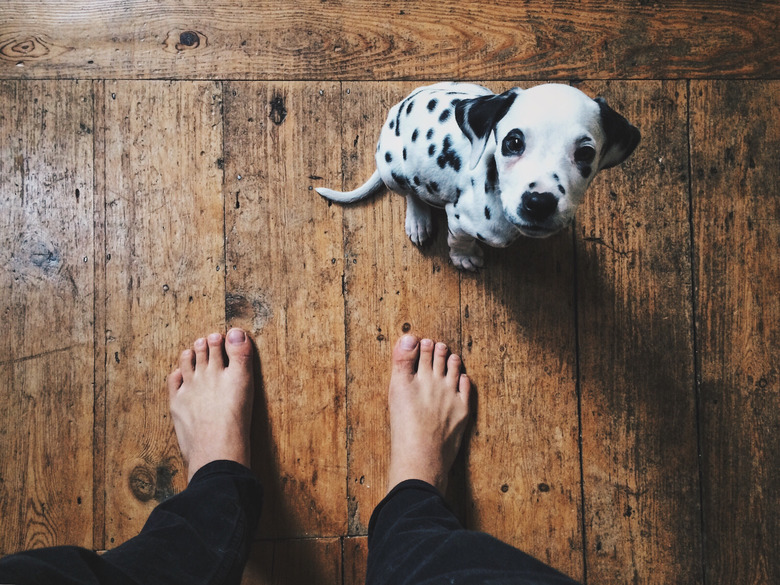How Long Does It Take For A Puppy Wormer To Work?
Happiness is a warm puppy, as "Peanuts" creator Charles Schulz so famously declared in a book featuring beloved characters like Charlie Brown, Lucy, Linus, and of course, Snoopy. If he entitled his book "Happiness is a Wormy Puppy," it probably wouldn't have been a best seller, but it would prove just as accurate. Warm and worm both apply to young puppies, but it's important to eradicate the latter. Fortunately, following the right puppy deworming protocol will do the trick.
Puppy worms
Puppy worms
Puppies are vulnerable to infestation with various types of worms, which may infect them in utero or through their mother's milk. Roundworms are the most common type of worms in puppies, but they are also likely to suffer from hookworms, whipworms, and tapeworms. All of these worms live in the intestinal tract.
Not all puppy worms derive from mom, especially if the mother dog was on a strict deworming schedule prior to pregnancy. Just taking a puppy outdoors for early house training or time to play can expose him to parasite eggs. Since puppies lick and sniff everything, it's easy for him to ingest these eggs. Upon reaching his intestines, the worms start hatching and feeding on the food in the intestines or the animal's blood.
No matter how well-cared for the mother and puppies are, the odds of a young puppy not having any worms are close to zero. While all worms in your pet are bad, the worst are hookworms. Hookworms attach themselves to the intestinal wall and feed off blood. Puppies may become severely debilitated from anemia as a result.
Signs of puppy worms
Signs of puppy worms
Worms can cause various health issues in puppies, and a large infestation can even kill a young pup. Signs of a wormy puppy include a pot belly — which is full of worms — vomiting, diarrhea or constipation, and failure to thrive. However, a puppy may look and act just fine, and then you see her deposit adult worms in her feces. If you notice what looks like rice segments around the anus or in the stools, your puppy is probably harboring tapeworms.
Puppy wormer schedule
Puppy wormer schedule
A puppy should receive his first deworming at the age of two-to-three weeks before he is weaned. Rather than use an over-the-counter deworming product, it is best if the vet examines the puppy and uses a broad spectrum dewormer that kills various types of worms. That first dose will kill the worms living within the intestine within 12 hours, but it won't kill the eggs the worms leave behind. That's why a second deworming is needed two weeks later, to kill off the worms that have since hatched, according to WebMD.
The basic puppy deworming schedule consists of an initial deworming at age two weeks and additional deworming every two weeks up until the puppies are eight weeks old, as per Animal Wised. That's followed by another deworming at 12 weeks. Continue to deworm the puppy every month until he reaches the age of six months. After that, your puppy may receive monthly heartworm medication, which is available only by prescription.
Although heartworm medication is designed to kill off the larval heartworms circulating in your puppy's body after being bitten by an infected mosquito, these drugs also kill off many other types of worms. Many heartworm medications are combined with flea and tick preventives, so you can keep your puppy free from worms and external parasites with one monthly tablet or semi-annual injection. Your vet will discuss the best heartworm medication to give your puppy. Heartworm medications don't kill tapeworms, so you must continue to deworm for these parasites as per your vet's recommendations.

